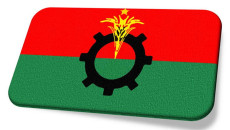
Professor Dr. Sheikh Md. Nazmul Hasan
26 July, 2024 00:36
The Solution to the Quota Reform Movement: Choosing the hard way over the easy way
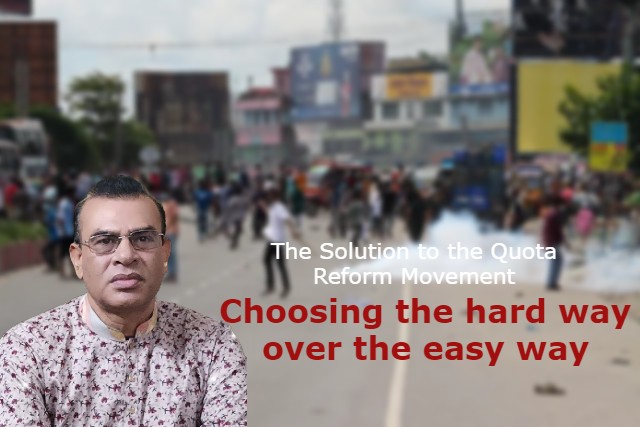
Instead of being obstinate, the Awami League and the government should have anticipated the extent to which the quota reform movement could go. A segment of the population harbors resentment towards the government, and thus, it was foreseeable that the movement would extend beyond just quota reforms. The government’s overconfidence in suppressing the movement was a clear miscalculation. Many, including myself, had expressed concerns about this. The general populace had a certain level of sympathy for the quota reform activists. This innocent support stemmed not just from the demand for quota reforms but more from their discontent and distrust towards the government.
It did not take much intelligence to foresee that various anti-Awami League organizations would leverage the protesters' banners for their own anti-government sabotage. The direct experiences from the opposition to the Ganajagaran Mancha, the Hefazat-e-Islam gatherings, and the student movement for safe roads indicate this. In past anti-government events, it has been proven that although these opposition groups might have considerable influence, their organizational capabilities are almost nil. They are like diacritics on consonants, dependent on others for execution. Thus, these unorganized groups have opportunistically ridden on the students' shoulders to further their interests, which is utterly unfair and unjust. In their bid to undermine the government, they have engaged in anti-state activities, causing significant harm to the nation.
However, the Awami League cannot evade responsibility for this failure; they bear the blame for allowing the movement to escalate to this point. This should never have escalated to such an extent. The Bengali idiom "hate paji mongolbar" means choosing a complicated solution when a simpler one exists. The Awami League did just that. The solution was straightforward and could have been nipped in the bud. The government might have thought they could use the same tactics used to suppress the Hefazat movement, but they failed to recognize that the two movements were different. During the Hefazat movement, all pro-independence forces stood united under the banner of the Ganajagaran Mancha, countering every propaganda, strategy, and sabotage attempt with their lives on the line. At that time, the anti-liberation forces could not hold their ground in the cyber war. The worldwide Bengali community actively supported the Ganajagaran Mancha against all propaganda, creating a strong pro-government sentiment both online and offline.
However, discarding allies after achieving goals is characteristic of the Awami League. The Ganajagaran Mancha was similarly discarded under various pretexts. Consequently, most of the cyber warriors from that time remained silent during the recent movement, failing to write in support of the Awami League. This time, the online space has been taken over by anti-Awami League forces. The internet and cyber world, once a blessing for the Awami League, became a curse due to their failure to nurture their own online activists and writers. As a result, the government had no choice but to shut down the internet to protect itself, causing significant damage to the country. The financial losses incurred during this period appear to surpass those sustained during the nine months of the Liberation War.
The importance of pro-independence online activists and writers in maintaining the country's stability and resources has become evident. In my opinion, the Awami League's wings and allied organizations should be reformed and restructured to match it with the demand of time. It is essential to form an "Online Activist and Writer League" urgently. Online activism is now more critical than street movements. Besides, online activists often lead on the streets, as exemplified by the Ganajagaran Mancha.
During the Ganajagaran Mancha movement, the roadblocks read, "Road closed, nation reform in progress." The Ganajagaran Mancha had given the Awami League a clear 'blank check' message that this country belongs to the spirit of the Liberation War and will never belong to anti-liberation forces. The Awami League failed to utilize this blank check. Today, the organizers of the Ganajagaran Mancha, who fought for the Awami League and the spirit of the Liberation War, are forced to seek asylum abroad to save their lives under the Awami League's rule. Those still in the country are also undervalued. In contrast, the owner of Enam Medical, who supported during the Rana Plaza disaster, was given a cabinet position. After the Rana Plaza disaster, activists from the Ganajagaran Mancha also went to Savar to stand by the affected people. I was there myself for three days straight.
The violent path taken to solve the quota issue was neither desirable nor necessary. A straightforward solution was possible and preferable. The current resolution, marred by additional grievances, frustrations, anxieties, mistrust, and disbelief, will not easily dissipate and will remain in the public consciousness. Any minor future problem will see an exaggerated response due to these lingering issues. The Awami League could not solve the problem satisfactorily. Despite their statements, worry lines are visible on the Awami League’s foreheads.
The Liberation War, which ensures the Awami League's sustenance, has been so mishandled through stubbornness and overconfidence that it has lost some respect among the new generation. Thus, it seems unlikely that the Awami League will sustain itself solely by invoking the Liberation War in the future. This will increase the Awami League’s reliance on bureaucracy, which is a significant moral defeat for an old and experienced political party that emerged from the masses. Although this moral defeat has been ongoing, it has now reached an indelible stage.
Awami League is an experienced political party, and moreover, they are in government. It is somewhat surprising that the government did not get information about the sabotages in advance. To those opportunistic conspirators, I say - you can't succeed in a movement this way. The responsibility for the deaths of these people falls on you as well.
It appears that Awami League has a strategy of using the courts to handle controversial issues instead of addressing them directly. The caretaker government, which was a result of Awami League's movement, was also buried by Awami League through the courts. They employed the same strategy with the quota issue. Determining quotas is the responsibility of the executive branch. The issue should have moved from the executive branch to the legislative branch and then to the judiciary. Awami League has already adopted the strategy of handing it over to the judiciary. As a result, at the beginning of the quota movement, Awami League's attitude was as if they knew nothing, like they didn't even know how to flip a fried fish, while the court knows everything. Although if the government wanted, they could convene the court any day, at any time, within 365 days to make a decision. The same should have been done in this case as well.
There are many options to prove the love for the Liberation War. Awami League has done many things, but they couldn't execute these in a way that touched the common people's hearts. They have done so much in the name of their own kin that people have become fed up, and as a result, everything else has been overshadowed by this irritation. The corruption, autocracy, and disdain for people by government institutions have consumed all achievements. To cover up this 'inability' failure, the party became desperate to prove its love for the Liberation War by keeping an excess quota for freedom fighters. Ultimately, they couldn't maintain it. The solution to the quota reform movement ended up being like bowing down in shame and licking their own spit for the Awami League.
In trying to form BAKSAL, Awami League faced a catastrophe, and now due to intellectual bankruptcy over the quota, they have suffered another loss. Consequently, the greatest achievement of this country, the supreme sacrifice of '71, and the devotion and respect for the Liberation War have come under question. This stubbornness of Awami League has contributed to somewhat equating the names of Razakars and freedom fighters in the eyes of the new generation. The Awami League holds the responsibility for bringing the Liberation War and freedom fighters to such a disrespected position.
A 'mole' like quota reform has turned into a 'palm tree' due to Awami League's stubbornness, obstinacy, and intellectual failure. The way Awami League is proudly claiming credit for the resolution is intellectual infertility, a shameless arrogance, and a lack of conscience. Many mothers have lost their children. Who will take responsibility for the lives of many young souls taken away? Even if someone takes responsibility, what's the point? The ones who are gone are gone; those who have lost know what suffering truly is!
In this country, the student movements led to the Language Movement, and subsequently to the independence and Liberation War. The streets of Bengal have been stained with the blood of students. The young generation who shed their blood for independence from British rule, for the language, and for turning East Pakistan into Bangladesh, now have to shed their blood in independent Bangladesh just for a job! Shame on the 53 years of political leadership in this country.
I don't know which Awami League leaders foolishly overconfidently mobilized their affiliated organization, the Chhatra League, to the field. Due to their shortsighted decision, people became annoyed, and their own affiliate organization's leaders and activists lost their lives, leaving many mothers' hearts empty. No one belongs to anyone; those who leave, leave for ever. Even though the Chhatra League was later called back, by then this historic organization had suffered significant damage. As a result, there was a rush to leave the Chhatra League. The central president's room was vandalized. This severely weakened the Chhatra League, making it difficult for them to gain acceptance from the general students. Although they are a student organization, they now have to operate political activities separate from the students. The tradition of the historic Chhatra League is now under question.
The price must be paid for making individuals leaders based on personal and family proximity and the leader's praise quota without grassroots involvement. These instances of intellectual infertility are the result. The current leadership has caused significant harm to the Awami League. The bloody history they have created will remain a dark chapter for the party. The current leadership has left challenges for the future leadership.
Despite declaring zero tolerance to suppress corruption, the Awami League government hasn't been able to take the life of a single corrupt individual. However, they managed to take the lives of young people on the streets demanding quota reforms. The young person demanding quota reforms is considered an enemy of the Awami League, but the corrupt individuals plundering the country are not enemies of the Awami League. They grow under its protection.
Create employment opportunities outside government jobs. Every year, 2.2 million young people enter the job market. Through the Public Service Commission, less than 3,000 get jobs on average, which is only 0.14%, leaving 99.86% without jobs. The young people who should be doing research and building society are giving up their lives for jobs today. After 53 years of independence, the young generation is not responsible for the country's current state. This responsibility lies with you. You are the beneficiaries of independence, not the young generation. They have gained nothing except sovereign land. They had one life, which they have now given up.
- Professor Dr. Sheikh Md. Nazmul Hasan: Writer and Researcher
- Email: nazmul.uni.edu@yahoo.com



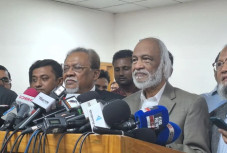
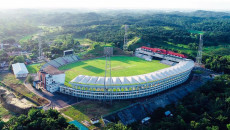
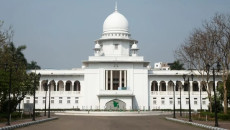
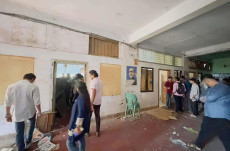
 সিলেট সিপিবি সাধারণ সম্পাদক সুমন ‘আটক’
সিলেট সিপিবি সাধারণ সম্পাদক সুমন ‘আটক’ 




 IT Lab Solutions Ltd.
IT Lab Solutions Ltd.
আপনার মন্তব্য